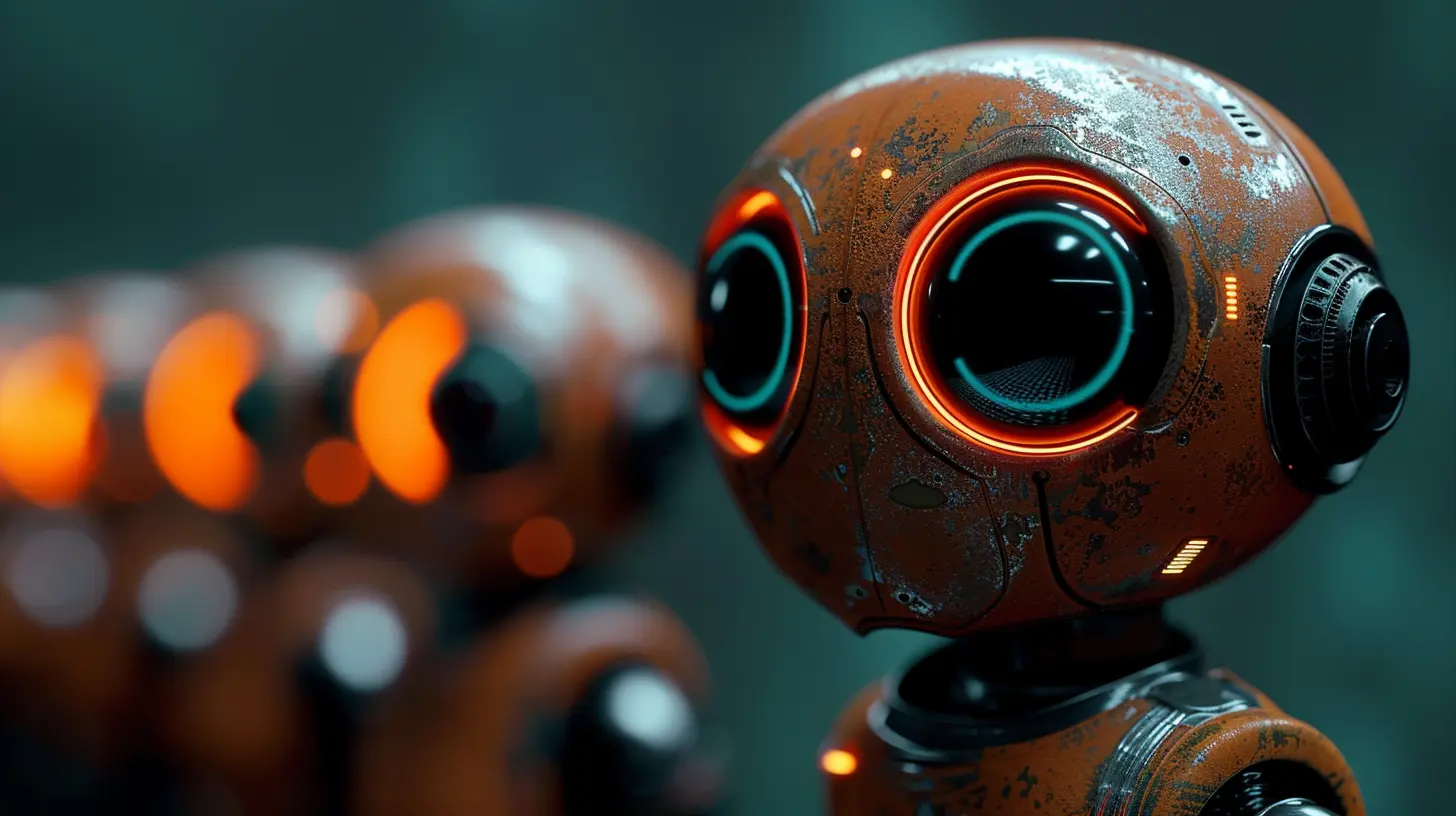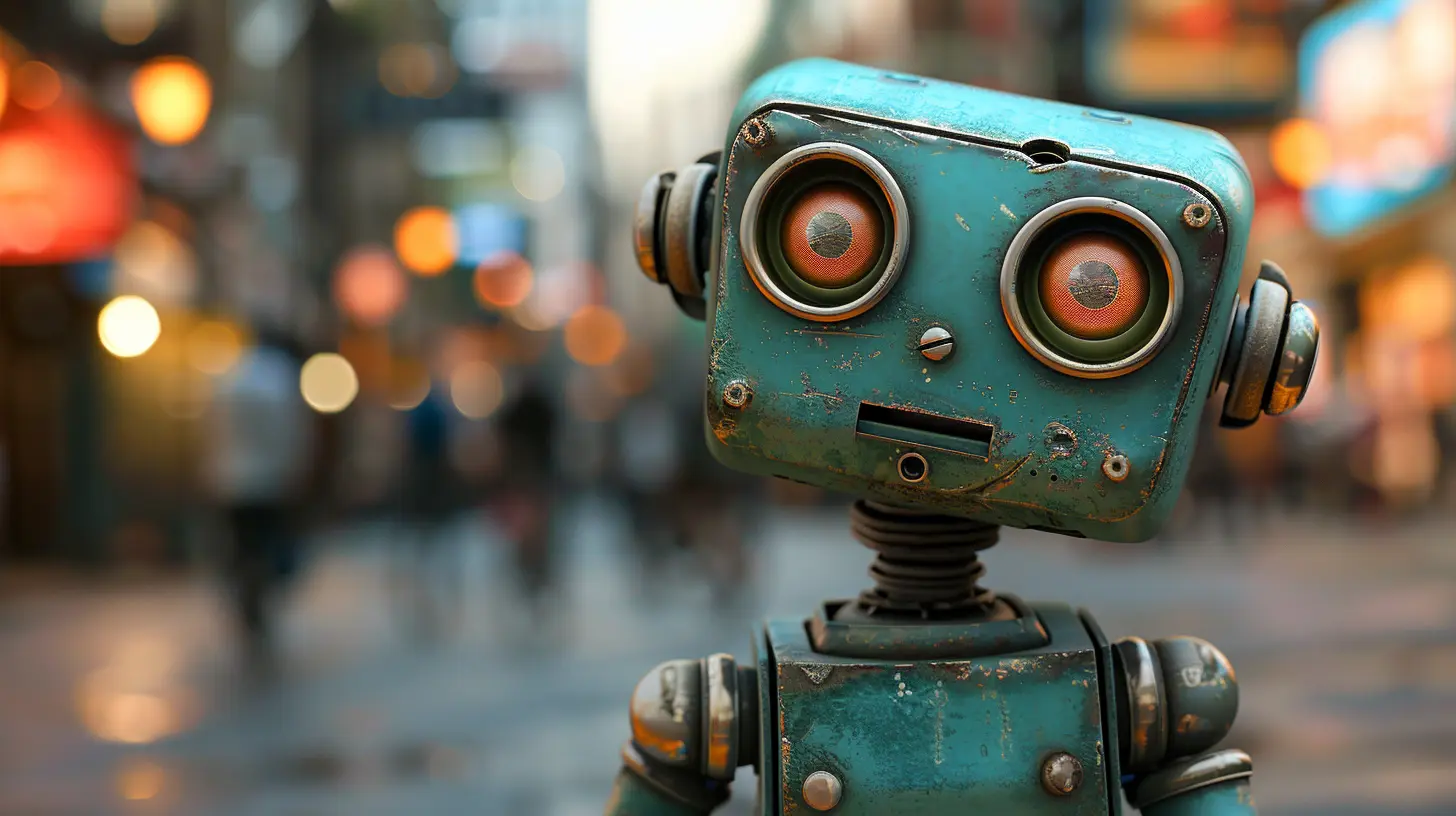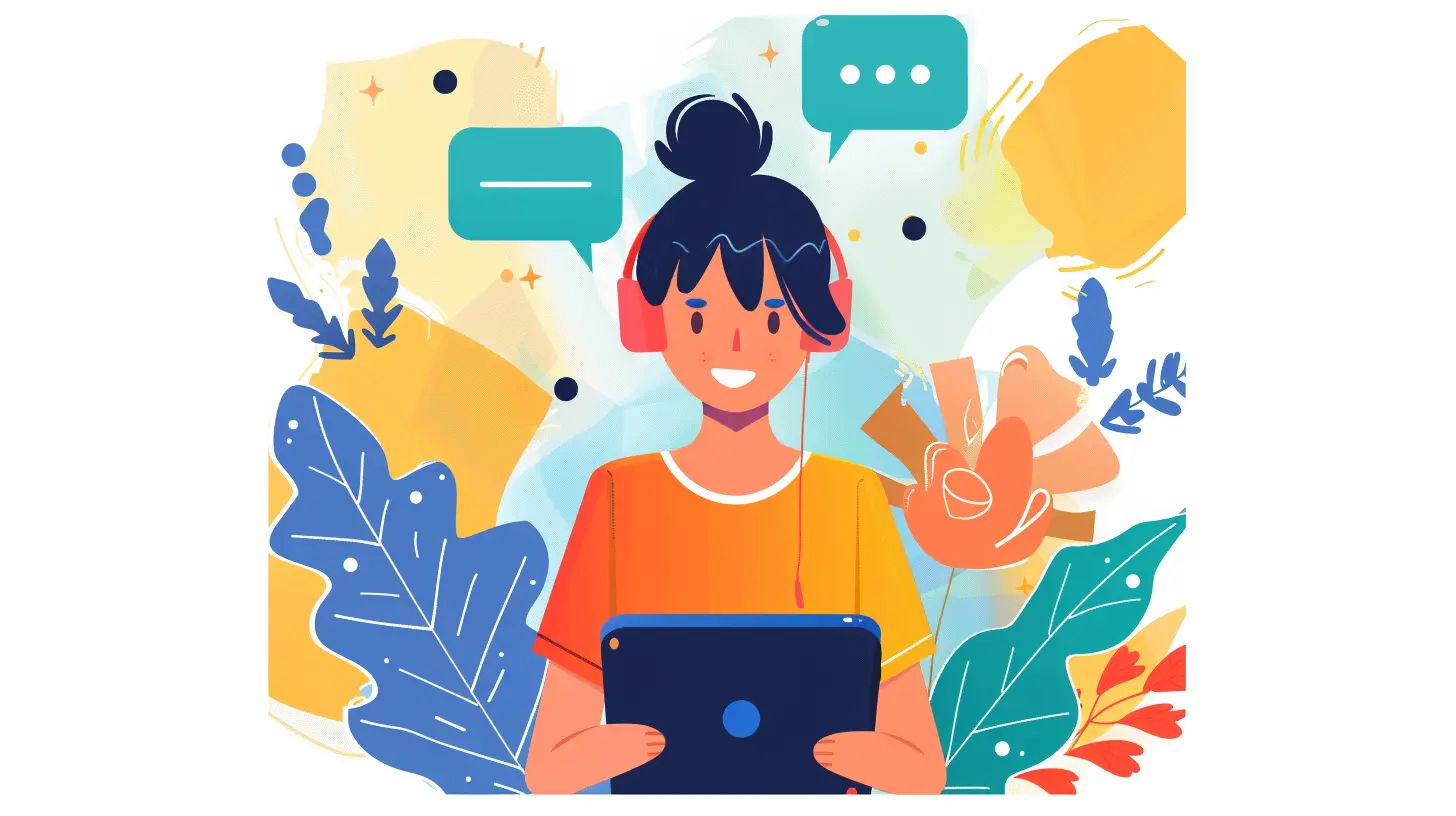The Impact of AI-Powered Chatbots on Customer Service
27 July 2025
Customer service has undergone a massive transformation in recent years, thanks to the rise of AI-powered chatbots. These smart assistants are changing how businesses interact with customers, offering instant responses, personalized recommendations, and round-the-clock support.
But are AI chatbots really improving customer service, or are they just replacing human agents? Let’s dive deep into their impact and find out how they're reshaping the industry for better (or worse). 
The Rise of AI-Powered Chatbots in Customer Service
Remember the days of waiting on hold for customer support? It felt like an eternity, listening to that repetitive, dull music while desperately hoping for a human to pick up the call. Well, AI-powered chatbots have come to the rescue!With advancements in artificial intelligence, chatbots have evolved from generic, automated responders to highly intelligent virtual assistants. They use natural language processing (NLP) and machine learning (ML) to understand customer queries, deliver accurate responses, and even predict concerns before they arise.
This shift isn’t just a trend—it’s a game-changer for businesses and customers alike. 
How AI Chatbots Are Revolutionizing Customer Service
1. 24/7 Availability: No More Waiting in Line
One of the biggest perks of AI chatbots is their availability. Unlike human agents who work in shifts, chatbots never sleep. Whether it's 2 AM or Christmas morning, they’re always there to assist customers.This has significantly improved response times since customers don’t have to wait for office hours or sit in long queues. A simple query? Solved in seconds. That’s the magic of automation!
2. Instant Responses: No More Hold Times
Patience isn’t a virtue when you're dealing with an urgent issue. AI chatbots provide real-time responses, cutting down frustrating wait times. Instead of navigating through endless phone menus or support tickets, customers get immediate assistance.And let’s be honest—who wouldn’t prefer a quick answer over wasting time on hold?
3. Cost Savings for Businesses
Hiring and training customer support agents can be expensive. AI chatbots help reduce these costs by handling routine inquiries, allowing businesses to allocate human agents for complex issues that need a personal touch.It’s like having an army of virtual assistants working tirelessly without monthly paychecks!
4. Personalization at Scale
Gone are the days of generic, robotic replies. AI chatbots can analyze customer data, purchase history, and preferences to provide highly personalized responses.Imagine asking a chatbot about your last order, and it instantly retrieves all the details without you having to explain anything. That’s the power of AI-driven personalization.
5. Seamless Integration Across Platforms
Customers today interact with businesses through multiple channels—websites, social media, messaging apps, and even voice assistants. AI chatbots integrate seamlessly across these platforms, ensuring a consistent customer experience no matter where the conversation starts.Whether you're chatting on Facebook Messenger or a company’s website, the bot remembers your previous interactions and continues the conversation effortlessly.
6. Handling High Volumes With Ease
During peak seasons like Black Friday or holiday sales, support teams often get overwhelmed with customer inquiries. AI chatbots can handle thousands of queries simultaneously without breaking a sweat.This ensures that businesses maintain smooth operations even during high-demand periods, keeping customers satisfied without overwhelming human agents. 
The Challenges of AI Chatbots in Customer Service
Of course, it’s not all sunshine and rainbows. While AI chatbots have revolutionized customer service, they do come with a few downsides.1. Lack of Emotional Intelligence
AI chatbots are great at answering questions, but they lack emotional intelligence. They can’t empathize with frustrated customers the way human agents can.For sensitive issues—like refund disputes or complaints—customers may feel unheard if they're only interacting with a bot. Humans, with their ability to understand emotions, still play a crucial role in customer service.
2. Limited Understanding of Complex Queries
Despite significant advancements in NLP, chatbots aren’t perfect. They may struggle with complex requests or ambiguous language.Ever had a chatbot give you an irrelevant or frustrating response? It happens. When inquiries become too intricate, a human agent is usually needed to step in and resolve the problem.
3. Dependence on Proper Training and Data
A chatbot is only as good as the data it’s trained on. If it's fed inaccurate or limited data, it can provide misleading responses, causing confusion and frustration for customers.Continuous optimization is needed to refine chatbot interactions and ensure they remain useful and relevant.
4. Risk of Customer Frustration
While AI chatbots are efficient, they can sometimes lead to customer frustration—especially when there’s no clear option to speak to a human.Nobody likes endlessly looping in a chatbot conversation with no resolution. Businesses must strike a balance by ensuring easy hand-offs to human agents when needed. 
The Future of AI Chatbots in Customer Service
AI-powered chatbots are here to stay, but what does the future hold?1. More Advanced AI & Sentiment Analysis
Future chatbots will likely become more emotionally intelligent, using sentiment analysis to detect frustration, happiness, or confusion in a customer’s message.This could allow bots to escalate issues to human representatives at the right moment, improving overall customer satisfaction.
2. Voice-Powered AI Assistants
Text-based chatbots dominate today, but voice-powered AI assistants are growing rapidly. Imagine calling customer service and having an AI assistant instantly recognize your issue and provide real-time solutions.Voice bots could revolutionize interactions, making conversations feel more natural and engaging.
3. Hyper-Personalized Customer Support
AI will continue evolving to offer hyper-personalized interactions. Future chatbots will remember customer preferences across multiple interactions, creating a more seamless and customized experience.It’s like having a personal concierge but in digital form!
4. AI & Human Collaboration for a Hybrid Approach
The future isn’t about choosing AI over humans—it’s about making them work together. Businesses that integrate AI chatbots alongside human agents will provide the best customer experiences.Chatbots will handle simple queries, while humans will focus on complex and emotionally-driven interactions. This hybrid approach ensures efficiency without compromising on the human touch.
Final Thoughts: Are AI Chatbots the Future of Customer Service?
AI-powered chatbots have undoubtedly changed the customer service landscape. They provide quick responses, reduce costs, and work around the clock, making life easier for businesses and customers alike.However, they’re not a perfect replacement for human agents. While chatbots excel at handling routine inquiries, human interaction remains irreplaceable for complex and emotionally-driven issues.
So, are AI chatbots the future of customer service? The answer is a blend of yes and no. They’ll continue evolving and improving, but the best customer experiences will come from a combination of AI’s efficiency and human empathy.
As technology advances, one thing’s for sure—customer service will never be the same again!
all images in this post were generated using AI tools
Category:
Digital TransformationAuthor:

Reese McQuillan
Discussion
rate this article
1 comments
Pearl Love
AI-powered chatbots are revolutionizing customer service by providing instant responses and 24/7 availability. However, while they enhance efficiency, they can lack the personal touch that human representatives offer. Striking a balance between automation and human interaction will be crucial for successful customer experiences.
August 5, 2025 at 3:23 AM

Reese McQuillan
Thank you for your insights! Balancing automation with human interaction is indeed key to maximizing the benefits of AI-powered chatbots in customer service.


